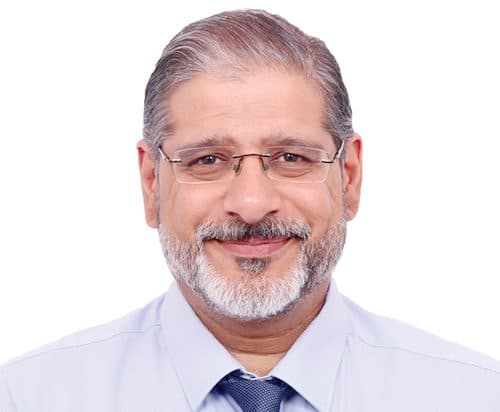Make in India is surely what we all should promote; but first of all, we need a well-developed infrastructure for the same. Ashok Chadda, managing director, Powersem GmbH Germany and Powersem Semiconductors Pvt Ltd India, in a conversation with Deepshikha Shukla, discusses how Make In India helps to uplift the Indian electronics market and what its challenges are.

Q. How can Make in India products help to reduce costs?
A. Customers in India should buy innovative modules made in India and believe more in Indian products. If you want to innovate with your application, use resources available in India. Also, with new kinds of mounting technologies and modules, you can really save costs.
Q. What is a good way to target customers in the electronics market?
A. It’s good to look for distributors both online as well as offline. But we are thinking about selling products online only. In Europe, we’re selling mainly through online distributors, and it is working fine. Therefore we are also starting online sales in India. Earlier, we were only exporting, but now we are in contact with some of the online distributors. We’re looking for partnerships in India with online distributors and application centres.
Q. How far the Make in India government policies are helping manufacture in India?
A. A lot of developers of semiconductors are from India, but living and working abroad. We can all innovate here too, but to sell products from India worldwide, we need a far better infrastructure facilities, better corporate laws, and more support from the Indian government. What we have seen so far is that there is no machine which can’t be made in India.
Right now, it is very difficult to manufacture in India as there are sudden introductions like GST. But we feel that with this government, we can get it done. We have to talk openly and keep trust in our abilities because Europeans and Americans trust Indian abilities, and a lot of their CEOs are Indians.
Q. Do you believe that moving towards industry automation can help India?
A. We believe that with the number of people we have in India, we should mainly work with them. And we don’t believe in buying expensive machines from Germany or Europe because you will also have to fly in people who are maintaining these. We don’t need to buy big expensive machines from Europe as we can make alternative machines even in India and learn to use and improve them step by step. So, in India, we have got everything, including skilled labour and industries that can make customised machinery, which is much cheaper. If we buy machines in India, these can be maintained by Indians. So, our maintenance costs also get reduced. And the other thing is that we don’t believe in making goods in India by buying machines from abroad like from China, USA or Europe.
Q. What are the challenges faced by the Indian market and how are you planning to overcome them?
A. There are a lot of foreign companies that are coming to India and are manufacturing products in Sweden, Germany, Brazil, or the USA. They are coming to India and want to sell the same products in India. But it makes no sense manufacturing in Germany and other places and sending it all the way here because the cost becomes in addition very high. And if you want to be competitive with China, you have to reduce costs. So, we want to make the same modules in India that we make in Germany for the local market and also for export to Middle East Turkey, Australia or Malaysia and other emerging markets.
Q. How are you planning to contribute to the Indian electronics market?
A. Powersem’s main target is to sell innovative and customised power semiconductor modules in India—whether developed and made in Germany or India. We want to offer a single quality worldwide that can be also exported from India. We provide power semiconductor modules for the PC board, which can be mounted directly on the board or can be pressed in or can be soldered. We are also focusing on the miniaturisation of electronic components to save material and costs. We are planning to supply innovation made in India not bought from China or Germany into India. Currently, we have a manufacturing unit in Bangalore, and we are planning to expand it to North India, Pondicherry or East India.






